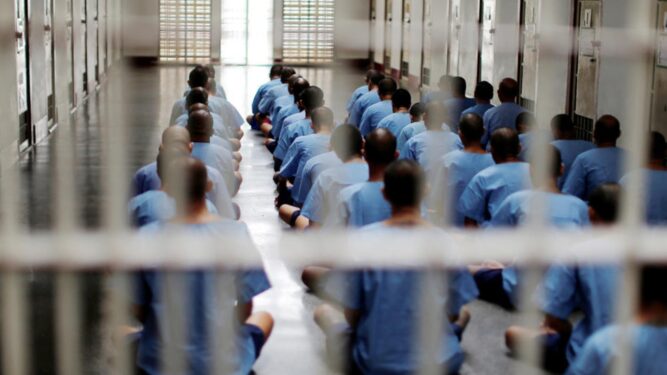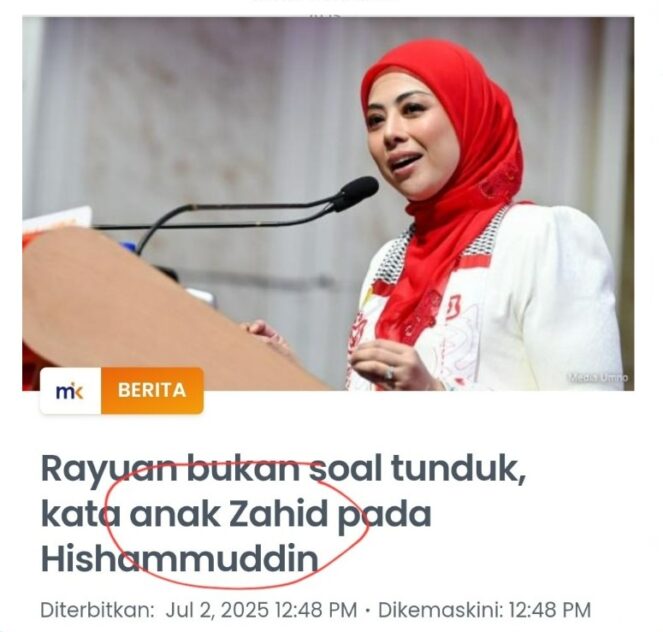ON Aug 23, the Federal Court upheld Datuk Seri Najib Razak’s 12-year jail sentence and RM210 mil fine for abuse of power, money laundering and criminal breach of trust over SRC International funds amounting to RM42 mil with the disgraced ex-premier sent to the Kajang Prison to commence his sentence.
But this is not the only graft-related charge faced by Najib, 69 as he has four more pending court cases linked to state-owned investment fund 1Malaysia Development Bhd (1MDB).
Above all else, Najib is not alone facing corruption charges considering that there are a few high-profile cases that are currently at various levels of progress, the most recent being that of Najib’s wife Datin Seri Rosmah Mansor who was sentenced to 10-year imprisonment and RM970 mil fine for soliciting and accepting bribes in the RM1.25 bil solar hybrid energy project for 369 rural schools in Sarawak.
Others high-profile cases that are still being tried or awaiting the court’s verdict include that of UMNO president Datuk Seri Ahmad Zahid Hamidi, former Tabung Haji chairman Datuk Seri Abdul Azeez Abdul Rahim and that of Kinabatangan MP Datuk Seri Bung Moktar Radin and his wife, Datin Seri Zizie Izette Samad who have been ordered to enter their defence on charges of corruption and abetment over a RM150 mil FELCRA investment.

Towards this end, Malaysian Association of Certified Fraud Examiners president Datuk Seri Akhbar Satar has listed down five basic sentencing philosophies deemed popular by criminologists to punish wrongdoers regardless of their status in the society:
- Retribution
Retribution or the concept of “an eye for an eye” is one of oldest punishments representative of a heavy sentence. Retribution is punishment for crimes against the society and depriving offenders of their freedom by making them pay a debt back to society for the crimes they committed.
The offender must be punished according to the seriousness of his crime. It is believed that retribution is reasonable justification for criminal punishment of wrongdoers. This theory seeks to punish offenders because they deserved to be punished.
Modern examples of retribution include the widespread practices of imposing fines as well as enforcing mandatory sentencing policies for certain offenses under the law. As an effective punishment, retribution has been criticised as being overly rigid and limited in its capacity to change societal behaviour. However, it still remains popular.
- Incapacitation
Incapacitation focuses on removing and restricting the offender from the society to commit future crime. Prisons these days have become the means by which offenders are isolated from the society so that they can no longer harm members of public or commit crimes.
However, some prisons have been described as a school for crime, breeding grounds for crime and to train criminals to commit heavier or more serious crimes.
The most extreme and severe form of incapacitation is capital punishment. A legal penalty in Malaysia and Singapore, capital punishment is often justified through the concept of deterrence but whether the death sentence actually deters potential offenders is highly contested.
What is indisputable is that once put to death, an individual is incapable of committing further offenses. Capital punishment is said therefore undeniably “effective” or the “final solution” in terms of its incapacitation.
Crimes currently punishable by death in Malaysia include murder, drug trafficking, terrorism, kidnapping and possession of firearms.
Last June, the Malaysian Government announced that it has agreed to abolish the mandatory death penalty. The death penalty is a symptom of a culture of violence and not a solution to it, according to Amnesty International (AI).

Whipping is widely used as a form of legal corporal punishment in Malaysia and Singapore.
In Malaysia, economic and financial crime cases such as section 409 of the Penal Code relates to criminal breach of trust (CBT) by a public servant/agent which is punishable with a jail term of two years or up to 20 years and with whipping along with a fine.
But the AI and United Nations Human Rights Committee have condemned corporal punishment including whipping as cruel, inhumane, degrading punishment and contrary to international human rights law.
According to them, it has no place in a modern criminal justice system.
- Rehabilitation
Rehabilitation programmes are designed to help turn offenders and covert criminals into law abiding citizens.
They provide offenders opportunities to acquire and develop job skills, overcome drug addictions and aggression, and somehow to ensure the offender reforms or learns how to deal with challenges they face upon release.
Re-education courses are very important and necessary for successful rehabilitation of offenders.
- Deterrence
Deterrence is intended to prevent future crime. The fear of going to prison is what is hoped will make someone think again before committing the crime.
There are two types of deterrence, i.e., general deterrence and specific deterrence.
General deterrence seeks to understand how an offender’s punishment can deter others from committing crimes, while the specific deterrence analyses how effective punishment can discourage an offender from repeating the crime.
Some school of thoughts believe that if the primary purpose of punishment is to effect physical pain to the offenders, it does not serve any purpose.
However, if it makes the offender realise the serious of the offence committed by him – and to repent – it achieves its ultimate goal.
- Restoration
Lastly, the country relies on a concept called “restorative justice” which is a system of criminal justice that focuses on the rehabilitation, repair and transformation of offenders through reconciliation with victims and community members.
It aims to restore the harm caused by crime and take responsibility for their actions rather than punishing them. This restoration justice programme focuses on the victim’s perspective that can give a chance to offenders to redeem, enable them to reintegrate into the society and not to repeat the same mistakes.
Many studies show that it makes offenders less likely to re-offend.
The Norwegian prison system follows this unique approach of solely restricting the liberty of prisoners but they are allowed to vote and has been considered as the best, most comfortable prison in the world whereby the offenders have access to amenities such as private bathroom, refrigerator, televisions and access to outdoor environment with lowest security and friendly guards.
Interestingly, it also has the lowest recidivism rate in the world. On the contrary, Singapore has one of the worst prison whereby prisoners have no bedding and only provided with a straw mat and two blankets. – Sept 5, 2022









